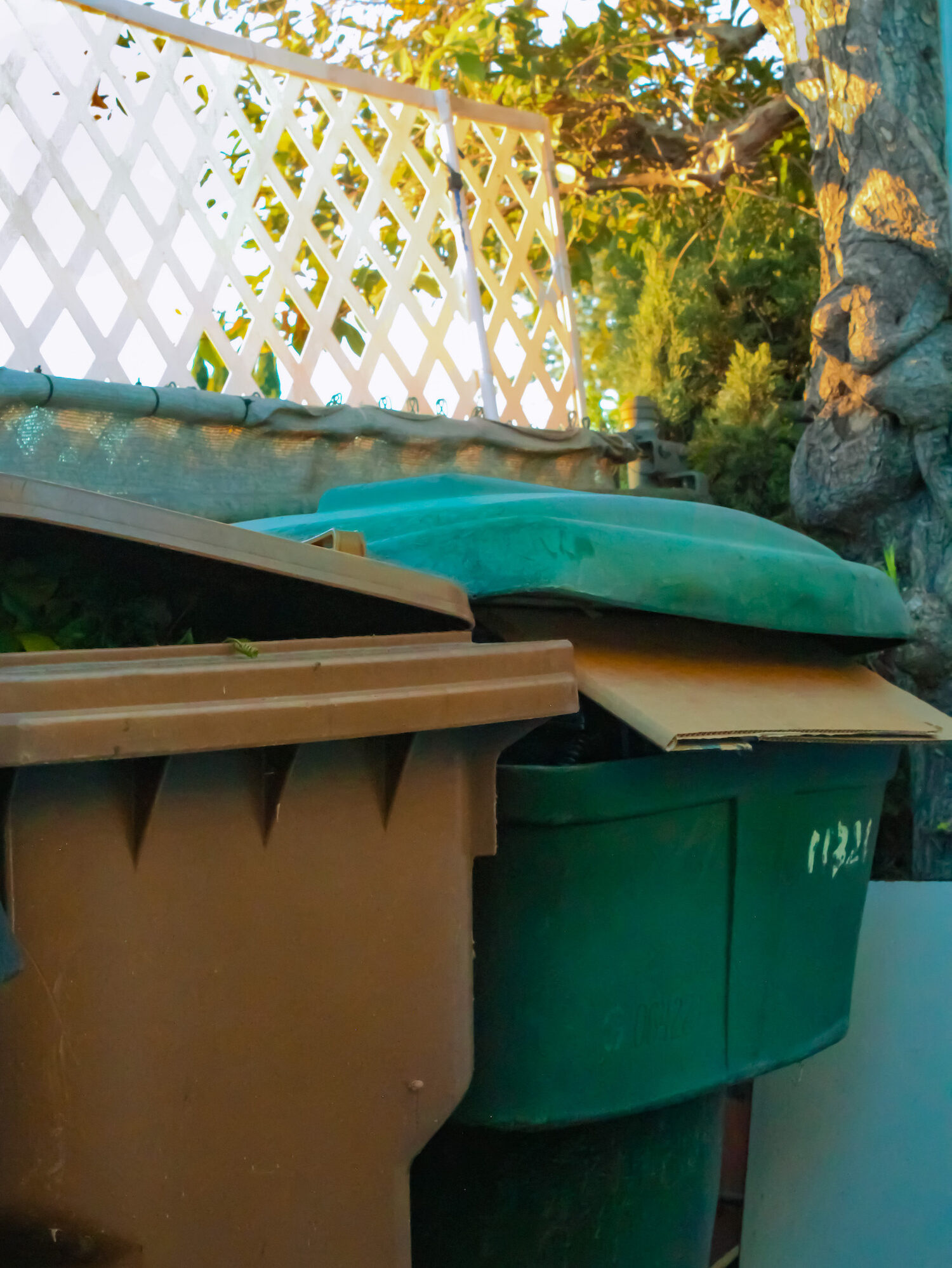
By Reese Meister
Last month, the city of Fountain Valley began requiring its residents to place organic waste, including food scraps, in their green yard waste bins as required by California Senate Bill 1383 (SB 1383) from September 2016.
SB 1383 officially went into effect at the start of 2022, requiring the city, county or area that provides waste collection services to collect organic waste and educate the community about the change. Businesses and households will receive this service, and some collecting organizations allow residents to self-haul their waste.
According to a letter sent to Fountain Valley residents from the city and its waste collector, Republic Services, SB 1383 plans to reduce the amount of organic waste sent to landfills in order to minimize air pollution such as methane emissions.
“SB 1383 establishes targets to achieve a reduction in statewide disposal of organic waste; 50% from the 2014 level by 2020 and a 75% reduction by 2025,” Republic Services and the city said in the letter.
Organic waste currently accounts for about 50% of material in landfills, the source of around 20% of California’s methane emissions, which lead to climate change and the issues that come along with it.
Rather than placing organic waste in landfills, collection services will take it to a composting or anaerobic digestion facility in order to produce compost, renewable energy or paper. Additionally, the new bill aims to distribute at least 20% of the currently wasted food to people who will eat it.
Republic Services also sent a pamphlet and sticker that clarifies what materials residents may or may not place in each color waste bin. The company intends for residents to place the sticker on the lids of their organic waste containers as a reminder of what they may place inside.
Now, along with yard waste, residents may place all kinds of food scraps in the green organic waste bin, including egg shells, coffee grounds, produce and more. Tea bags and food-soiled paper products such as pizza boxes will also be accepted.
Residents are allowed to put any food scraps in paper bags before placing them in the organic waste bin, but any waste not in a paper bag must be loose in the container.
However, there are several materials that cannot be placed in the green container: manure, pet waste, plastics, recyclables and more. People should also be sure to avoid placing fats and oils, dirt, rocks or raw meat in this bin. Even other recyclable, compostable or biodegradable materials cannot be placed in the organics bin.
SB 1383 also enforces contamination monitoring of residential waste bins to ensure that the correct materials are separated into the different bins. If bins are contaminated, the collectors will leave a notice, and multiple notices may result in fees.
Republic Services suggests that people keep readily available containers for food scraps in their kitchens. When the container becomes full, they can empty it directly into the larger green collection bin.
Some people may have concerns about the odor that the food waste collection could produce. In the pamphlet, Republic Services offers some suggestions to combat this issue.
Smaller kitchen waste containers can be lined with paper bags to be taken out when full or rinsed to keep it clean. They may also be kept in a refrigerator or freezer until pickup day to reduce the smell.
Adding baking soda to both a kitchen container and the organic waste bin itself will mask odors. In the large green organic waste container, lining the bin with yard waste first and rinsing it after collection could also help.
Since SB 1383 did not provide funds for the project, Republic Services and the city of Fountain Valley warned of price increases to waste collection bills starting on Oct. 1, another possible concern with the system. Despite these worries, though, this transition has the potential to make its way into the daily practices of many Fountain Valley residents.
Fountain Valley High School senior Hailey Hoang commented that her household uses the green waste bin “all the time,” but they do not currently have any food compost system. When informed about the recent alteration in waste collection, however, Hoang conveyed a willingness to make changes.
“I would try to put food waste in the green bin,” Hoang said. “I feel like it would take time, but at some point I would [make the transition to composting using the green waste bin].”
Overall, the collection of organic waste has the potential to reduce California’s greenhouse gas emissions and to encourage further progress toward sustainable practices in the state.





